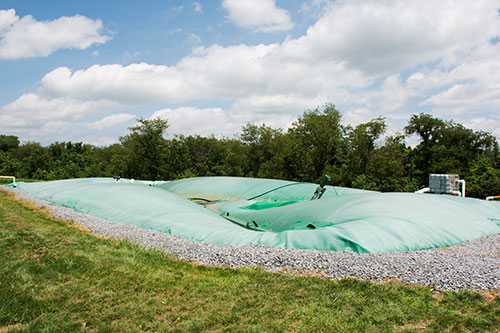
While some smaller dairy farms do use them, anaerobic digesters typically have the reputation of being a manure handling method strictly for larger operations. And of the 202 anaerobic digesters operating on United States' dairies at the beginning of this year, most are on farms with more than 1,000 cows.
However, the advantages of anaerobic digesters - on-farm production of electricity, odor reduction, and by-products such as livestock bedding or compost and fertilizer, to name a few - could benefit a dairy of any size. For that reason, the state of Wisconsin has made a financial commitment to support smaller farms interested in installing such a system.
Focus on Energy has announced that $6.4 million in grant money is available to help fund anaerobic digester projects on small Wisconsin dairies, defined as farms with 700 head of cattle or less. The funding for this program was set aside by the Public Service Commission (PSC).
Approximately $500,000 is available per project. An anaerobic digester is no small investment, and the financial benefits vary farm to farm. Individual farm feasibility studies by a Wisconsin-based anaerobic digestion company are also available at no cost to help farms determine the costs and potential value a digester could bring to their operation.
Wisconsin currently has more anaerobic digesters on dairy farms than any other state. Still, with an average herd size of 100 cows, Focus on Energy sees room for growth in anaerobic digester usage on smaller dairies in the state. If small-sized operations in the Badger State find success with on-farm digesters, usage in other states could also grow.
The application for the grant can be found at this link. The deadline is September 25, 2015.








